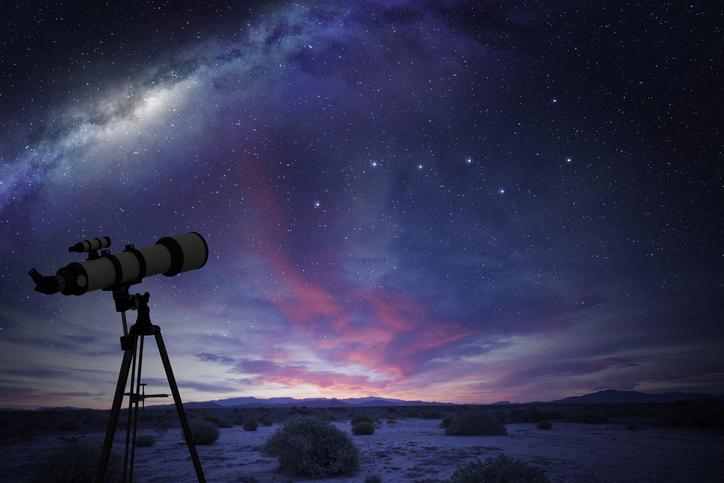
Astronomy is the scientific study of celestial bodies
such as stars, planets, comets, and galaxies. The imaginary patterns in
the night sky are called constellations.
The objects studied include stars, galaxies, planets, moons, asteroids,
comets and nebulae. Phenomena outside the Earth's atmosphere are also
studied. That includes supernovae explosions, gamma ray bursts, and
cosmic microwave background radiation. Astronomy concerns the
development, physics, chemistry, meteorology and movement of celestial
bodies, as well as the structure and development of the Universe.

Astronomy is one of the oldest sciences. Ancient people used the
positions of the stars to navigate, and to find when was the best time
to plant crops. Astronomy is very similar to astrophysics. A related
subject, cosmology, is concerned with studying the Universe as a
whole,[2] and the way the universe changed over time. Astronomy is not
the same as astrology, the belief that motion of the stars and the
planets may affect human lives.


Since the 20th century there have been two main types of astronomy,
observational and theoretical astronomy. Observational astronomy uses
telescopes and cameras to observe or look at stars, galaxies and other
astronomical objects. Theoretical astronomy uses maths and computer
models to explain the observations and predict what might happen.
Working together, theories predict what should happen and observations
show whether the predictions work. The main work of astronomy is to
explain puzzling features of the universe. For thousands of years the
most important issue was the motions of planets; now many other topics
are studied.
✰✰ ✰✰ ✰✰ ✰✰ ✰✰ ✰✰ ✰✰ ✰✰ ✰✰ ✰✰ ✰✰ ✰✰ ✰✰ ✰✰ ✰✰ ✰✰
Learn more on Wikipedia

